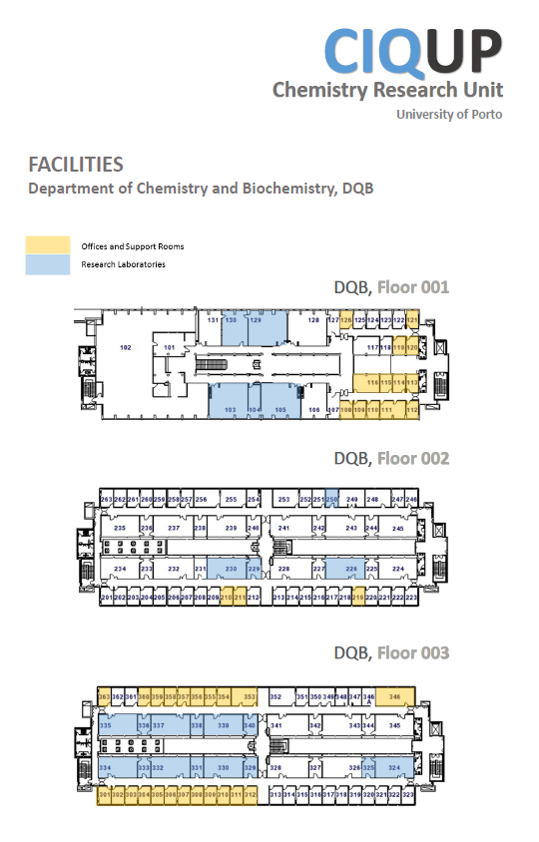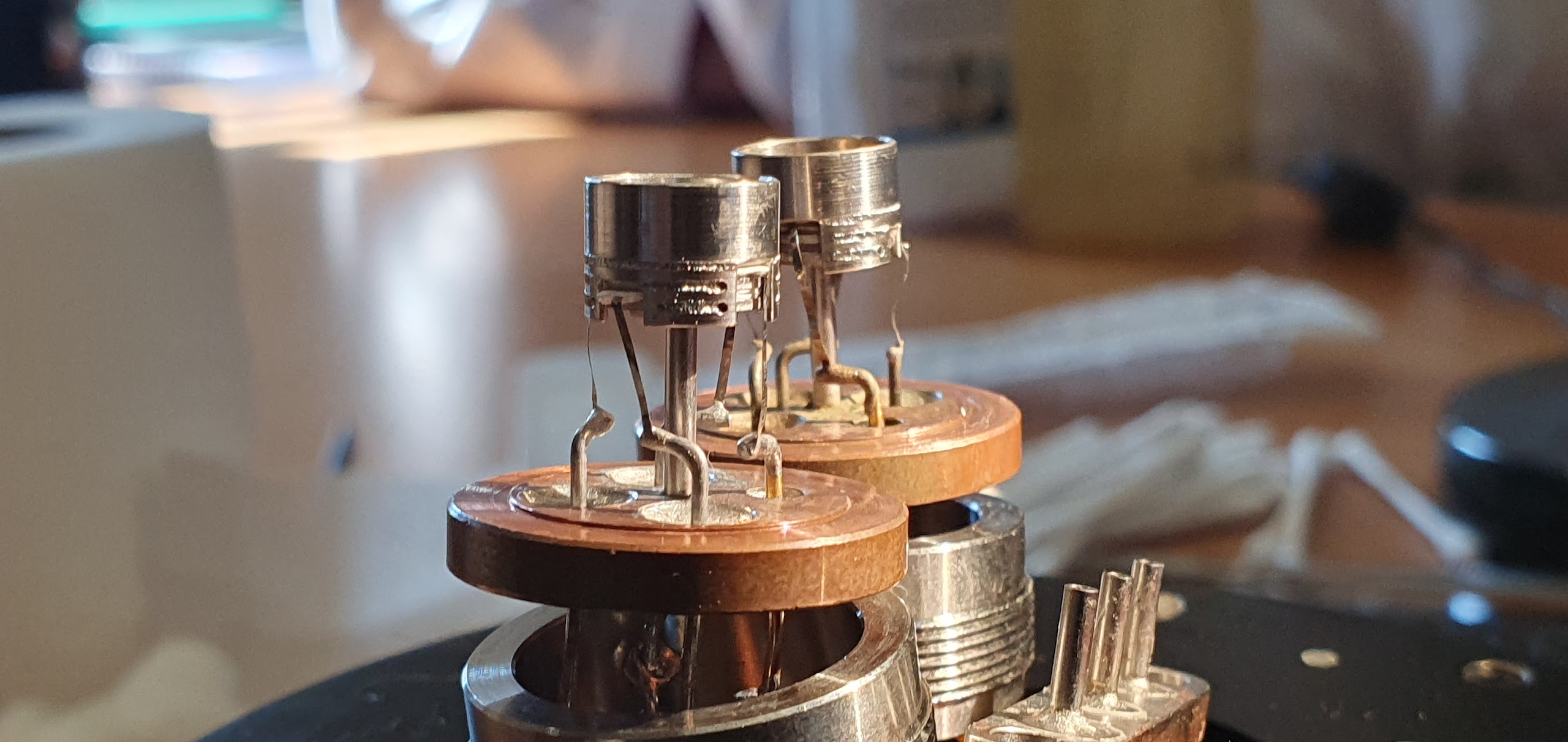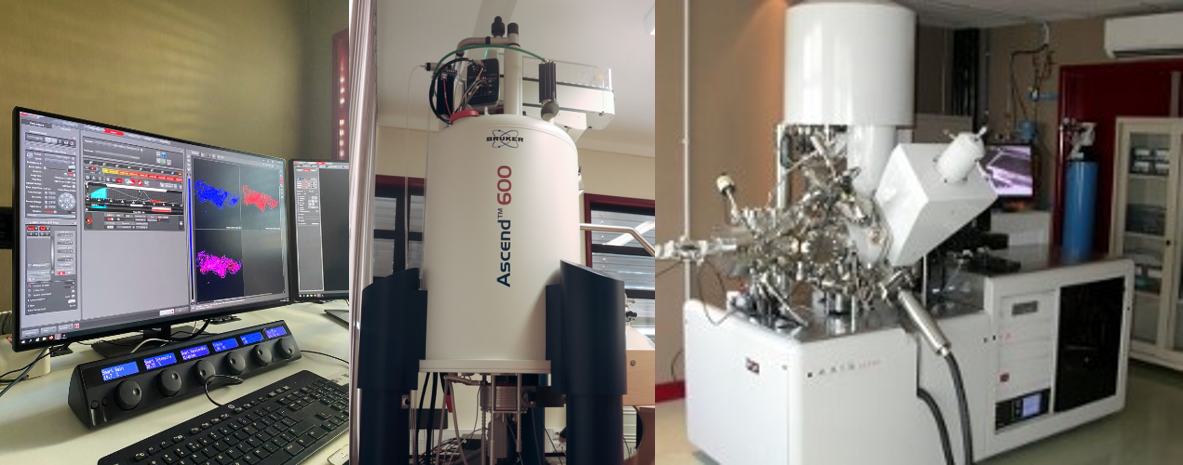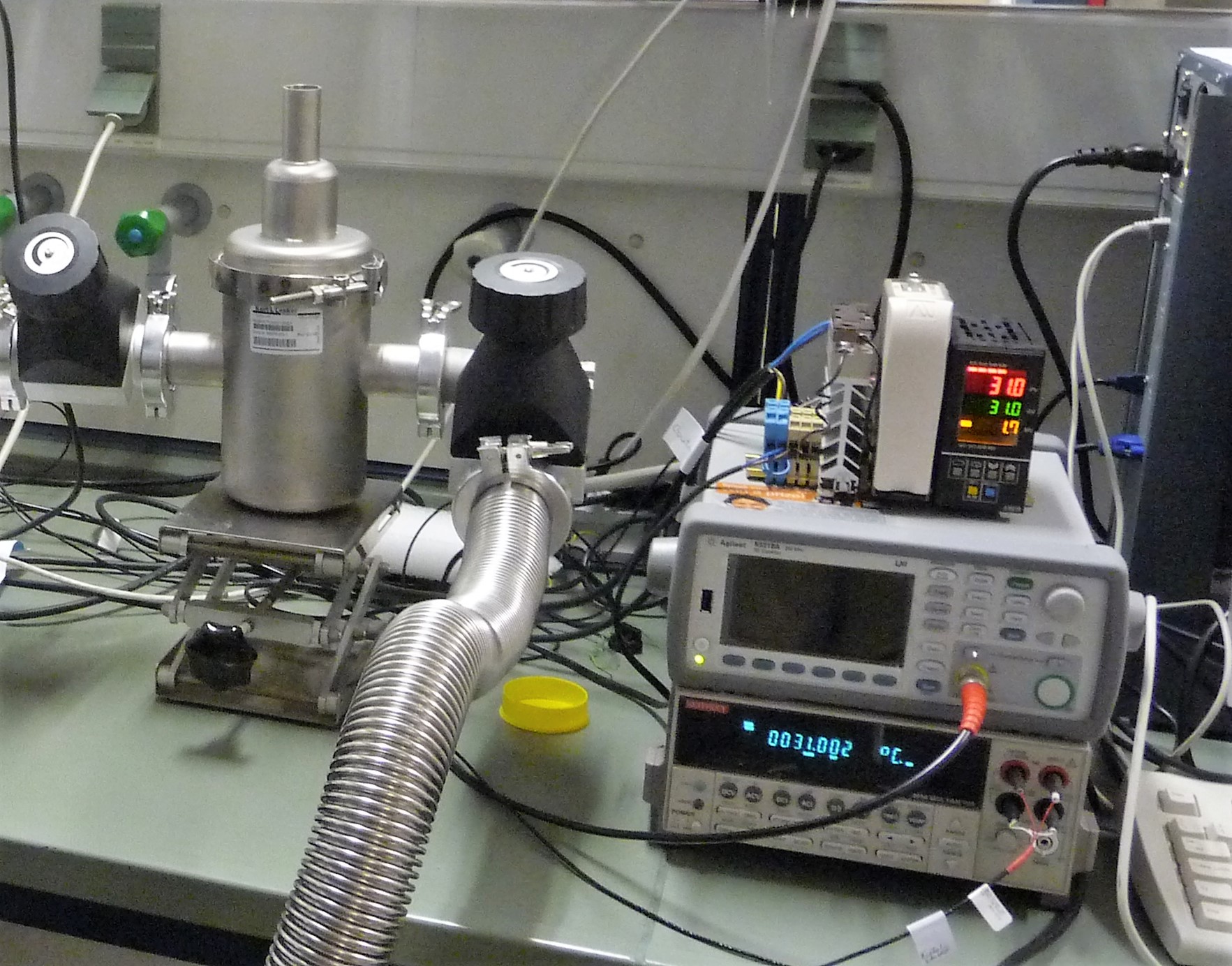Facilities
CIQUP research facilities are mainly located in the Department of Chemistry and Biochemistry (DQB) that is one of the six departments of Faculty of Sciences of University of Porto, FCUP. CIQUP research resources are distributed by 17 laboratories that occupy about 1000 m2 at DQB. Offices for permanent staff, postdoctoral researchers and PhD students are also available.

Some scientific instruments of DQB may be shared by the staff and researchers of CIQUP and of other research units, namely the following:
FTIR, NIR-ATR, FAAS, GFAAS, GC-MS, GC-ECD, GC-FID, HPLC- DAD, HPLC–fluorescence, UHPLC–fluorescence detection, HPLC-ionic exchange, benchtop RMN (60 MHz), Spectrofluorometer, DSC, TGA, STA, Zeta potential instrument, DLS, SEM.
The School of Engineering – Polytechnic of Porto also shares facilities with integrated members of CIQUP, accordingly to partnership agreements. These collaborations bring benefits for both parts involved.
Scientific Equipment of CIQUP

CIQUP has been investing funds regularly to acquire, maintain and update its scientific instruments and apparatus, in order to assure the necessary conditions to support competitive research at the international level. All the categorized equipment is used intensively and therefore requires a careful maintenance and the regular replacement of consumable and wearable parts.
CIQUP members also put a strong effort in developing new experimental methodologies to respond to the needs of innovative research. In some cases this has resulted in the design, development and assemblage of unique apparatus.
A list of the main equipment (commercial or home- assembled) Unit’s laboratories follows:
i. Spectroscopic techniques: UV-VIS, FTIR (IRRAS and ATR); steady-state, lifetime, anisotropy fluorescence;
ii. Calorimetric/thermophysical techniques: ITC, drop heat capacity calorimeter, high temperature Calvet microcalorimeter, DSC (macro and micro), dissolution microcalorimeter, calorimetric combustion bombs, Knudsen effusion apparatus and capacitive manometers for vapor pressure measurements, TGA,
iii. Imaging techniques: AFM, STM, epifluorescence/polarizing light microscopy;
iv. Chromatographic techniques: HPLC, UHPLC, HPLC-MS, GC (FID, MS, FID/MS);
v. Electroanalytical/interfacial techniques: potentiostats, galvanostats, Langmuir trough, thin film preparation, automated tensiometer, surface plasmon resonance (SPR), quartz crystal microbalance (QCM);
vi. Synthetic techniques: rotavapors and vacuum controller systems, vacuum pumps; recirculating chillers, magnetic stirrers, automated microwave synthesizer; ohmic heating reactor;
vii. Screening techniques: multiplate reader, membrane permeability (PAMPA) and PAMPA-BBB systems;
viii. Materials fabrication and characterization apparatus: multilayer thin-film vapour deposition; Oxidative stability; organic semiconductors materials characterization.
University Support

University of Porto (UP) support to research units goes beyond physical infrastructures. The Materials Centre of University of Porto (CEMUP) provides (under payment) access and know-how to a wide range of equipment and technologies such as X-ray Microanalysis (SEM/cryo-SEM/EDS/EBSD), Surface Analysis by Electron Spectroscopy (XPS), Scanning Probe Microscopy (AFM / MFM / STM), Nuclear Magnetic Resonance (RMN 400 and 600 MHz) mass spectrometry (MALDI-TOF/TOF and ORBITRAP) and X-ray Powder Diffraction (XRD).
At the Faculty of Sciences (FCUP), administrative, financial and human resources support are also provided.
Administrative

FCUP provides administrative staff, as well as the maintenance of infrastructures, health and safety management and basic resources such as water, electricity, heating system and communications. These expenses are covered by overheads of projects and other contracts.
Library
FCUP’s library guarantees access to different technical databases and bibliographic resources.
Communication Office
A communication and cooperation office is available to help promotion of R&D activities, like cooperation and broadcast of multimedia communication and efficient use of information.
High-Tech IT infrastructures
The hi-tech IT infrastructures is essential to the research activities. The network is accessible through labs and offices corresponding as requests. The basic software needed to conduct the research activities is also provided, as well as, tech support to the researchers. Advice and support in the acquisition of specific software is also given upon request.
